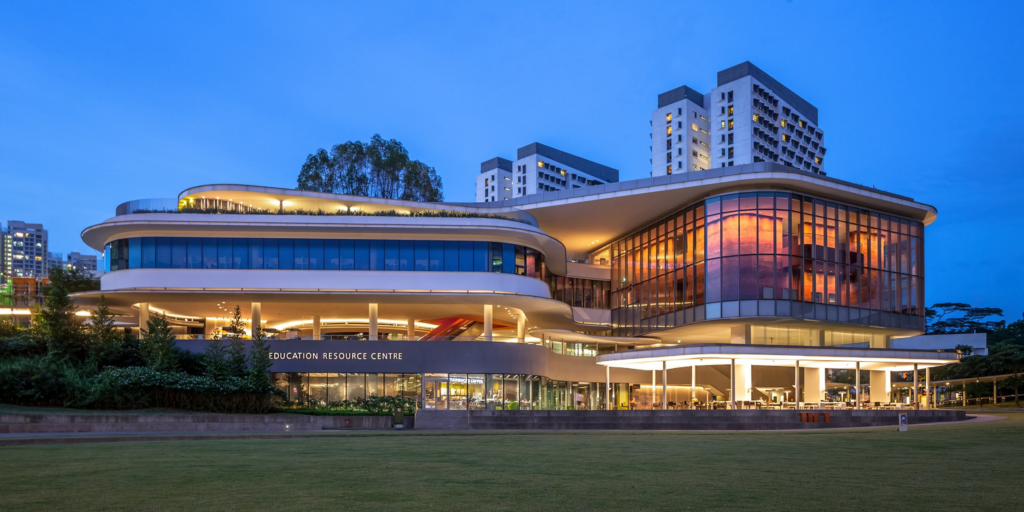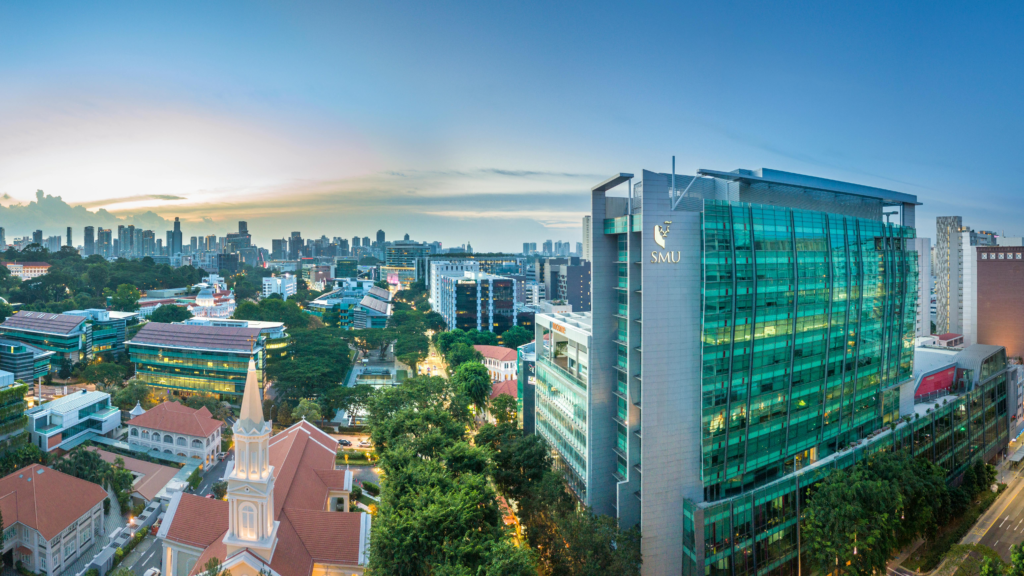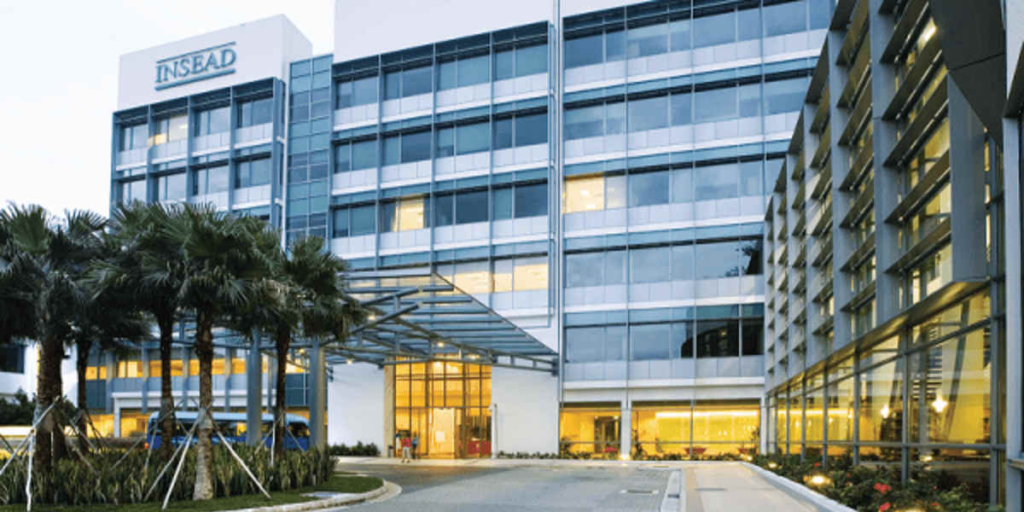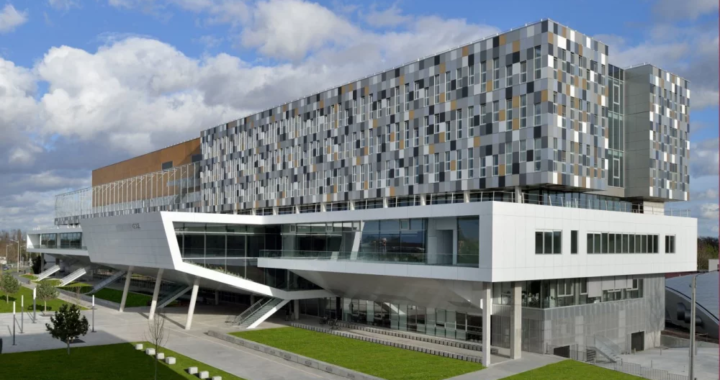Pursuing an MBA abroad is a significant decision, and for many Indian students, Singapore has become a top choice. But why is this city-state gaining so much attention? With its reputation as a global business hub, proximity to India, and world-class education system, Singapore offers an exceptional combination of quality and opportunity.
So, is an MBA in Singapore worth your time and investment? What are the best colleges to consider, and how much will it cost? This guide answers all your pressing questions and gives you a detailed roadmap to navigate your journey. Let’s dive into Singapore’s top MBA colleges, explore the costs, and examine the career prospects waiting for you post-MBA.
Best MBA Colleges in Singapore
Singapore is home to some of the world’s top business schools, known for their innovative curricula, diverse student base, and strong industry connections. Below, we’ll explore the top four MBA programs in Singapore, highlighting what makes each unique and including a table for easy comparison.
1. National University of Singapore (NUS) Business School
The NUS MBA is a flagship program known for its global perspective and focus on Asia. It consistently ranks among the top business schools globally, blending academic rigor with practical learning. Students benefit from a customizable curriculum, global exchange opportunities, and strong industry ties.

| Attribute | Details |
|---|---|
| Ranking | #15 (QS Global MBA Rankings 2025) |
| Acceptance Rate | ~10% |
| Tuition Fees | SGD 68,000 |
| Additional Expenses | SGD 20,000 (living, books, etc.) |
| Test Score Required | GMAT/GRE (Avg: GMAT 670+) |
| Post-MBA Salary | SGD 125,000/year |
| Notable Alumni | Ho Ching (CEO, Temasek Holdings) |
2. Nanyang Technological University (NTU) – Nanyang Business School
The NTU MBA is a dynamic program that emphasizes leadership and innovation. Known for its strong ties to the tech industry, NTU offers a forward-thinking curriculum that prepares students for the evolving business landscape. Its strategic location in Asia’s tech hub adds immense value to its graduates.

| Attribute | Details |
|---|---|
| Ranking | #30 (QS Global MBA Rankings 2025) |
| Acceptance Rate | ~15% |
| Tuition Fees | SGD 62,000 |
| Additional Expenses | SGD 18,000 (living, books, etc.) |
| Test Score Required | GMAT/GRE (Avg: GMAT 650+) |
| Post-MBA Salary | SGD 110,000/year |
| Notable Alumni | Vincent Wong (Director, Google APAC) |
3. Singapore Management University (SMU)
SMU’s MBA program stands out for its innovative pedagogy, interactive classroom sessions, and strong focus on leadership development. The program is designed for mid-career professionals and emphasizes real-world application through case studies and projects with leading companies in Singapore.

| Attribute | Details |
|---|---|
| Ranking | #48 (QS Global MBA Rankings 2025) |
| Acceptance Rate | ~20% |
| Tuition Fees | SGD 68,480 |
| Additional Expenses | SGD 22,000 (living, books, etc.) |
| Test Score Required | GMAT/GRE (Avg: GMAT 660+) |
| Post-MBA Salary | SGD 100,000/year |
| Notable Alumni | Tan Min-Liang (CEO, Razer) |
4. INSEAD Asia Campus
INSEAD’s Asia Campus in Singapore offers a globally renowned MBA program. With its intensive 10-month curriculum, it is a favorite among professionals aiming to fast-track their careers. INSEAD is known for its diverse cohort and unparalleled networking opportunities, with campuses in Europe, Asia, and the Middle East.

| Attribute | Details |
|---|---|
| Ranking | #3 (QS Global MBA Rankings 2025) |
| Acceptance Rate | ~25% |
| Tuition Fees | SGD 140,000 |
| Additional Expenses | SGD 30,000 (living, books, etc.) |
| Test Score Required | GMAT/GRE (Avg: GMAT 710+) |
| Post-MBA Salary | SGD 160,000/year |
| Notable Alumni | Cyrille Bolloré (CEO, Bolloré Group) |
Comparison Table: Key Data of MBA Colleges in Singapore
| College | Ranking | Tuition Fees | Additional Expenses | GMAT Avg | Post-MBA Salary | Acceptance Rate |
|---|---|---|---|---|---|---|
| NUS Business School | #15 | SGD 68,000 | SGD 20,000 | 670+ | SGD 125,000 | ~10% |
| NTU Business School | #30 | SGD 62,000 | SGD 18,000 | 650+ | SGD 110,000 | ~15% |
| SMU Business School | #48 | SGD 68,480 | SGD 22,000 | 660+ | SGD 100,000 | ~20% |
| INSEAD Asia Campus | #3 | SGD 140,000 | SGD 30,000 | 710+ | SGD 160,000 | ~25% |
MBA in Singapore: Costs and Fees
Understanding the cost of an MBA is a crucial step for any student planning to study abroad. Singapore, while offering top-notch education, comes with varying expenses depending on the institution and lifestyle. Below, we’ll break down the key cost components, including tuition, living expenses, and financial aid opportunities.
Tuition Fees Overview
The tuition fees for MBA programs in Singapore vary based on the institution and program duration. Here’s a quick comparison:
| College | Tuition Fees (SGD) |
|---|---|
| NUS Business School | 68,000 |
| NTU Business School | 62,000 |
| SMU Business School | 68,480 |
| INSEAD Asia Campus | 140,000 |
Tuition fees typically include course materials and access to campus resources but exclude other academic costs like certification fees or global immersion programs.
Living Expenses in Singapore
Living in Singapore is more affordable than in many other global MBA destinations, yet the costs can add up depending on your lifestyle. Here’s an average monthly breakdown:
| Expense Type | Monthly Cost (SGD) | Annual Cost (SGD) |
|---|---|---|
| Accommodation | 800–1,500 | 9,600–18,000 |
| Food | 300–500 | 3,600–6,000 |
| Transportation | 100–200 | 1,200–2,400 |
| Miscellaneous (utilities, leisure, etc.) | 200–400 | 2,400–4,800 |
| Total Annual Cost | — | 16,800–31,200 |
Pro Tip: Opt for shared accommodations or student housing to significantly reduce living expenses. Singapore’s excellent public transportation system also makes commuting affordable.
Scholarships and Financial Aid
While MBA programs in Singapore can be expensive, a wide range of scholarships and financial aid options are available to ease the burden for deserving students. Below are some notable scholarships:
| Scholarship Name | Eligibility | Coverage |
|---|---|---|
| NUS MBA Study Awards | High-achieving applicants | Up to SGD 20,000 |
| NTU Nanyang Scholarships | Academic excellence, leadership potential | Full tuition + SGD 5,000 stipend |
| SMU Global Impact Scholarship Award | Global leadership potential | Up to SGD 30,000 |
| INSEAD Diversity Scholarship | Financial need and contribution to diversity | Up to EUR 20,000 (approx. SGD 30,000) |
Funding Tips:
- Apply early to maximize scholarship opportunities.
- Research external funding sources, such as education loans or sponsorships from employers.
MBA Opportunities and Career Prospects in Singapore
An MBA in Singapore isn’t just an academic achievement—it’s a launchpad for a rewarding career in one of the most dynamic economies in the world. Known for its robust job market, Singapore offers excellent opportunities for MBA graduates, especially in sectors like finance, technology, consulting, and entrepreneurship.
Job Market Overview Post-Recession
Despite global economic challenges, Singapore’s job market has demonstrated resilience. The country’s strategic location as a global trade and financial hub ensures continued demand for skilled professionals. According to recent reports, MBA graduates in Singapore enjoy employment rates exceeding 90% within six months of graduation.
Key Highlights:
- Sectors like technology, green energy, and finance have shown significant growth.
- Companies are seeking leaders with strong analytical and cross-cultural communication skills—traits heavily emphasized in MBA programs.
Top Industries Hiring MBA Graduates
Singapore’s diverse economy means opportunities across multiple high-growth sectors. Here are some of the top industries actively hiring MBA graduates:
| Industry | Key Employers | Roles Offered |
|---|---|---|
| Finance | DBS Bank, Standard Chartered, OCBC | Investment Banker, Risk Manager |
| Consulting | McKinsey, BCG, Bain | Management Consultant, Strategy Lead |
| Technology | Google, Grab, Shopee | Product Manager, Data Strategist |
| Healthcare & Biotech | Johnson & Johnson, Novartis | Operations Manager, Market Analyst |
| Entrepreneurship | Startups and Innovation Hubs | Founders, Business Development Leads |
Pro Tip: Build your network during your MBA. Singapore’s MBA programs often include industry immersion programs, internships, and alumni connections that are vital for accessing top-tier opportunities.
MBA in Singapore for Indian Students
For Indian students, Singapore presents unique advantages, including cultural proximity and visa-friendly policies. Here’s what makes Singapore stand out:
- Ease of Work Visas: Upon graduation, international students can apply for the Long-Term Visit Pass (LTVP) or an Employment Pass, simplifying the job search process.
- Strong Alumni Network: Singapore’s business schools boast extensive global and regional networks, which can be instrumental for Indian students entering the competitive job market.
- High ROI: With average post-MBA salaries ranging between SGD 100,000 and SGD 160,000, MBA graduates often recover their investment within two to three years.
Is an MBA in Singapore Really Worth It?

Deciding to pursue an MBA is a significant investment, both financially and in terms of time. For many prospective students, the big question remains: is an MBA in Singapore worth it? To answer this, let’s analyze the return on investment, career growth, and personal development opportunities that an MBA in Singapore offers.
Financial ROI of an MBA in Singapore
The financial returns of an MBA in Singapore are among the highest in Asia. With relatively moderate tuition costs compared to Western programs and strong post-MBA salaries, many students find the financial investment well worth it.
| Metric | Details |
|---|---|
| Average Tuition Cost | SGD 68,000–140,000 |
| Post-MBA Salary | SGD 100,000–160,000 annually |
| Payback Period | 2–3 years |
A strong job market and Singapore’s status as a financial hub ensure graduates secure high-paying roles quickly. Additionally, tax benefits and lower living costs compared to global cities like London or New York further enhance the ROI.
Career Advancement and Networking
Singapore’s MBA programs are designed to provide students with global exposure, leadership skills, and access to unparalleled networking opportunities.
Key Benefits:
- Leadership Roles: Graduates frequently step into managerial and executive roles in industries like consulting, finance, and technology.
- Global Connections: Campuses attract diverse cohorts, offering rich cultural exchanges and global networking opportunities.
- Strategic Location: Situated in Asia’s business hub, Singapore provides access to regional and international job markets.
Success Story: A recent NUS MBA graduate transitioned from a mid-level role in Mumbai to a senior management position at Google Singapore with a 75% salary hike within one year of completing the program.
Personal and Professional Development
Beyond tangible outcomes like job placements and salaries, an MBA in Singapore offers transformative personal growth.
- Skills Development: Programs emphasize leadership, critical thinking, and cultural adaptability.
- Global Perspective: Exposure to case studies and real-world challenges from diverse industries helps students broaden their worldview.
- Entrepreneurial Opportunities: With Singapore ranking high in global startup ecosystems, graduates have ample support to launch their own ventures.
Pro Tip: Leverage the mentorship programs and industry linkages during your MBA to build relationships that last beyond the program.
ROI Comparison: Singapore vs Other MBA Destinations
| Destination | Average Tuition Fees (USD) | Post-MBA Salary (USD) | Payback Period (Years) |
|---|---|---|---|
| Singapore | 50,000–100,000 | 75,000–120,000 | 2–3 |
| USA | 120,000–150,000 | 120,000–150,000 | 4–5 |
| UK | 60,000–100,000 | 90,000–120,000 | 3–4 |
As evident, Singapore offers a shorter payback period while maintaining high global standards for education and career outcomes.
FAQs
1. What are the admission requirements for MBA programs in Singapore?
To apply for an MBA in Singapore, you typically need a bachelor’s degree in any discipline and a competitive GMAT or GRE score (with average GMAT scores ranging between 650 and 710, depending on the program). Most institutions also expect candidates to have 2–5 years of professional work experience, showcasing leadership potential or career progression. For international students, proficiency in English is essential, and you may need to submit TOEFL or IELTS scores unless your prior education was conducted in English.
2. Can international students work while studying for an MBA in Singapore?
Yes, international students can work part-time while pursuing their MBA in Singapore. According to Singapore’s immigration rules, students holding a valid Student Pass can work up to 16 hours per week during the academic term and full-time during scheduled breaks. This allows students to gain practical experience, earn additional income, and build industry connections.
3. What is the average salary of MBA graduates in Singapore?
MBA graduates in Singapore earn highly competitive salaries, with average post-MBA compensation ranging from SGD 100,000 to SGD 160,000 annually. Factors such as prior work experience, the industry chosen, and the institution attended influence starting salaries. Graduates from top schools like INSEAD and NUS tend to secure roles in high-paying sectors like consulting, finance, and technology.
4. Are there part-time MBA options available in Singapore?
Yes, many business schools in Singapore, including NUS and SMU, offer part-time MBA programs for working professionals. These programs are designed with flexible schedules, allowing students to balance work commitments while advancing their education. Part-time MBAs typically take longer to complete—spanning two to three years—but offer the same high-quality curriculum and networking opportunities as full-time programs.
5. How does the Singaporean MBA compare to other global MBA programs?
A Singaporean MBA offers a unique blend of global perspective and regional expertise, particularly for students aiming to work in Asia. Tuition fees are often lower than those in the US or UK, while post-MBA salaries remain competitive. Additionally, Singapore’s strategic location and reputation as a global business hub provide unmatched opportunities for networking and career advancement. The shorter program duration of many MBAs in Singapore (10–18 months) is another significant advantage, reducing time away from the workforce.
Conclusion
An MBA in Singapore is more than just a degree—it’s a gateway to global opportunities, particularly for Indian students seeking a world-class education close to home. With its top-ranked institutions, diverse job market, and high return on investment, Singapore is a premier destination for aspiring business leaders. Whether you’re drawn by the vibrant business ecosystem, affordable living costs, or unparalleled career prospects, pursuing an MBA here could be the best decision you make for your future.
Ready to take the next step? Research your options, prepare your application, and begin your journey toward an exceptional career today. If you need personalized guidance, don’t hesitate to seek expert advice to make your MBA dream a reality.




